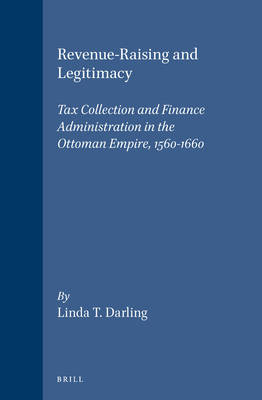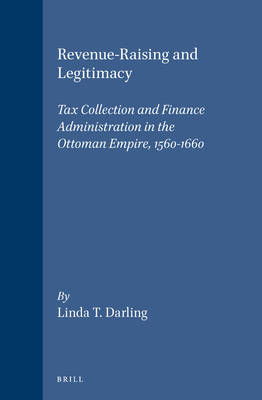
- Afhalen na 1 uur in een winkel met voorraad
- Gratis thuislevering in België vanaf € 30
- Ruim aanbod met 7 miljoen producten
- Afhalen na 1 uur in een winkel met voorraad
- Gratis thuislevering in België vanaf € 30
- Ruim aanbod met 7 miljoen producten
Zoeken
Revenue-Raising and Legitimacy
Tax Collection and Finance Administration in the Ottoman Empire, 1560-1660
Linda T Darling
€ 439,95
+ 879 punten
Omschrijving
This study examines for the first time the finance procedures and documents of the post-classical Ottoman Empire. It provides an overview of institutional and monetary history and a detailed description of assessment and collection processes for Cizye, Avariz and Iltizam-collected taxes, the documents produced by these processes, and the information they contain. The finance department's detailed record-keeping, procedural continuity, and provision of economic justice made it a bulwark of stability in a period of turmoil.
For specialists, this book introduces a multitude of sources on the economic and social history of the post-classical age, while for comparativists it places the empire in its seventeenth-century context. It links Ottoman administrative change with early modern state formation and reformulates the seventeenth century as a period of consolidation, not decline.
For specialists, this book introduces a multitude of sources on the economic and social history of the post-classical age, while for comparativists it places the empire in its seventeenth-century context. It links Ottoman administrative change with early modern state formation and reformulates the seventeenth century as a period of consolidation, not decline.
Specificaties
Betrokkenen
- Auteur(s):
- Uitgeverij:
Inhoud
- Aantal bladzijden:
- 384
- Taal:
- Engels
- Reeks:
- Reeksnummer:
- nr. 6
Eigenschappen
- Productcode (EAN):
- 9789004102897
- Verschijningsdatum:
- 1/02/1996
- Uitvoering:
- Hardcover
- Formaat:
- Genaaid
- Afmetingen:
- 166 mm x 246 mm
- Gewicht:
- 811 g

Alleen bij Standaard Boekhandel
+ 879 punten op je klantenkaart van Standaard Boekhandel
Beoordelingen
We publiceren alleen reviews die voldoen aan de voorwaarden voor reviews. Bekijk onze voorwaarden voor reviews.








